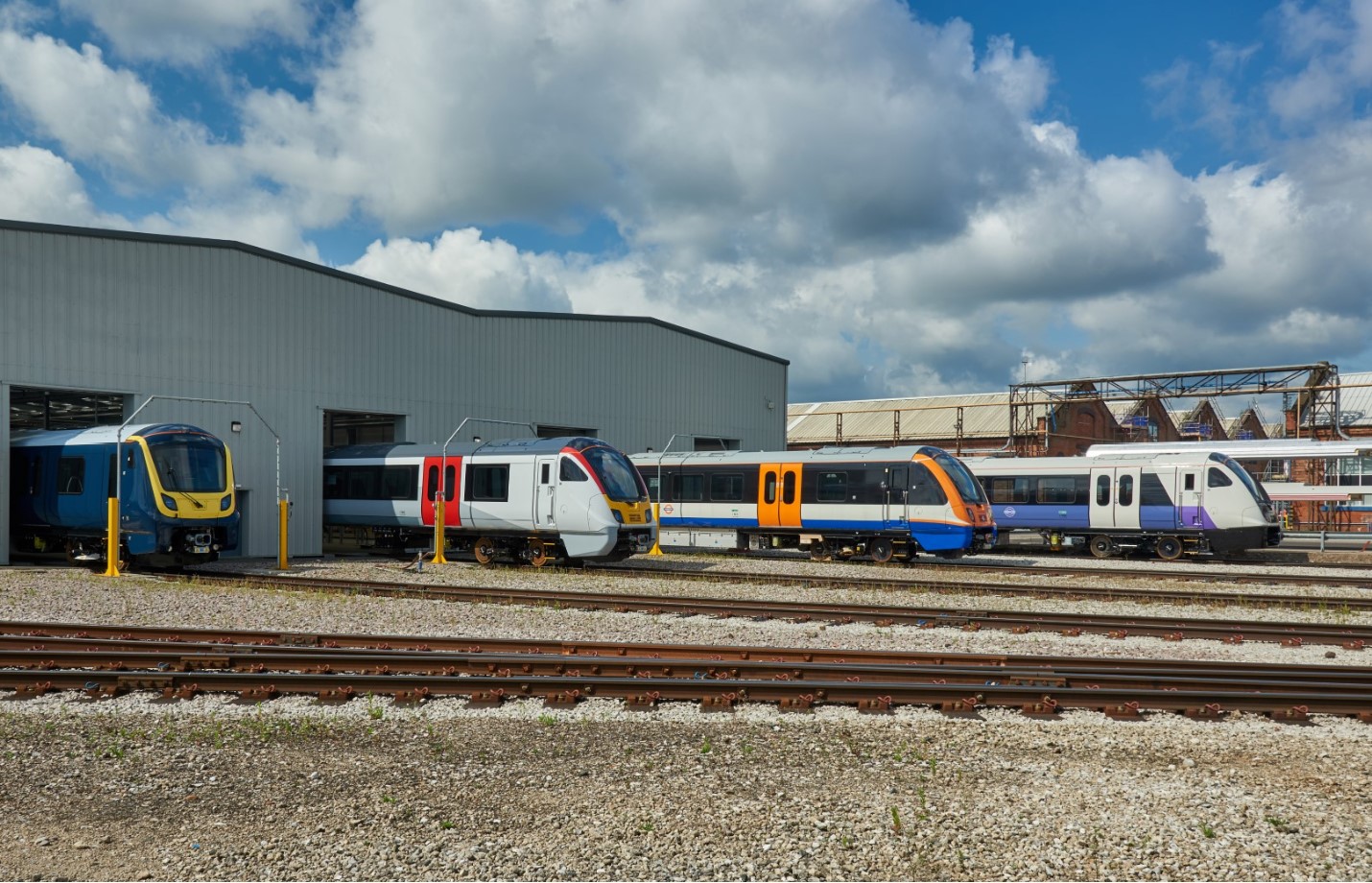The Transport Secretary Mark Harper says he has had “a good, constructive meeting with Alstom Group CEO Henri Poupart-Lafarge on the future of train manufacturing in the UK. He added on social media: “Intensive discussions are taking place, to conclude no later than the end of May”.
Alstom announced last month that production lines had stopped at its factory in Derby. The demobilising of manufacturing operations is due to a lack of workload between the end of Alstom UK’s current orders (the final ‘Aventra’ train was completed on Thurs 21 March) and HS2 manufacturing (which is expected to start in mid-2026, though there is no commitment on the HS2 delivery timetable from the Government). Discussions over the past ten months have so far failed to identify a package of workload to fill this production gap.
Responding to the meeting on Tuesday, an Alstom spokesperson said: “We are now in a period of intense discussions with the Government and Transport for London about a potential train order for the Elizabeth line given the levels of passenger demand.
“This could help secure the future of the Litchurch Lane site. The parties have agreed to conclude discussions as soon as possible and no later than the end of May. We will be making no further comment at this time.”
On Tuesday, Labour Shadow Transport Secretary Louise Haigh asked the Secretary of State for Transport if he would make a statement on steps being taken to prevent job losses in the UK’s rail manufacturing sector.
Answering, Rail and HS2 Minister Huw Merriman, he said: “I am responding on behalf of the Secretary of State, who will shortly be meeting the Alstom Group Chairman and Chief Executive to discuss a potential way forward. The Secretary of State will come to the House and make a statement at the appropriate time, noting the fact that they are sensitive commercial discussions.”
During his answer he referred to a letter he wrote to UK train manufacturers and rolling stock companies about the current and expected rolling stock procurement opportunities.
He said: “That included details of current competitions for Northern, Southeastern, Chiltern and TransPennine Express, and an expected procurement by Great Western Railway. The contracts are worth an estimated £3.6 billion, with more than 2,000 vehicles to be procured over the coming years. In the meantime, we will continue to work with UK manufacturers, including Alstom and Hitachi, to ensure that there is a strong and sustainable future for the rail industry.”
While Alstom is currently consulting its unions and employees on possible job losses, the Rail and HS2 Minister said “this must be a commercial decision for Alstom”.
He adds: “The Government have been working with the company to explore options to enable it to continue manufacturing at its Derby site. We have convened a cross-Whitehall group to advise on how to support continued production at Derby and how best to support those workers who are at risk of redundancy. We have held similar discussions with Hitachi, both in correspondence and face to face. We remain keen to work with Hitachi as it looks for commercial solutions to guarantee the long-term sustainable future of its Newton Aycliffe site. Hitachi is not currently consulting on any changes to its workforce.
“The fact remains that the market for passenger trains is a competitive one. The Department cannot guarantee orders for individual manufacturers. Trains are major assets with a lifetime of 35 to 40 years, so there will naturally be peaks and troughs in the procurement cycle. Nevertheless, we expect substantial continued demand for new trains. In recent months, London North Eastern Railway confirmed an order of 10 new tri-mode trains for the east coast main line. A tender for new trains for TransPennine Express was launched in December 2023.”
Also on Tuesday, RMT, the largest rail union, called for an urgent summit of unions, the rail industry and the government to thrash out a plan to save the Alstom train manufacturing site in Derby, including the option of nationalisation.
RMT general secretary Mick Lynch said that it was tragic that passengers and the climate were in desperate need of modern and reliable trains and skilled workers and capacity were ready to deliver that, but the government and rail industry had not been able to match up the demand and supply of new trains.
“The root cause of this failure is the privatisation and break up of a once unified public rail industry into multiple companies, with competing, profit motivated short-term interests which has prevented a lack of coherent planning for the delivery of rolling new trains and infrastructure.
“This is not new: it is a problem that has plagued the railway supply chain for many years.
“The consequences of the UK losing its last remaining train manufacturing facility will not only be devastating for jobs and the local community it would be disastrous for passengers as the government will have to rely on imported stock which could be more expensive to build and maintain.
“That is why we are today calling for a summit to save UK train manufacturing and develop a strategic plan that must include consideration of the nationalisation of UK train manufacturing,” he said.
A DfT spokesperson said: “The Transport Secretary held a positive, constructive meeting with Alstom’s leadership team today and we are now in a period of intensive discussions, to conclude no later than the end of May.
“The Government remains committed to supporting the entire rail manufacturing sector and will look to bring forward opportunities for rolling stock orders and refurbishment where there is a clear business need to do so.”

